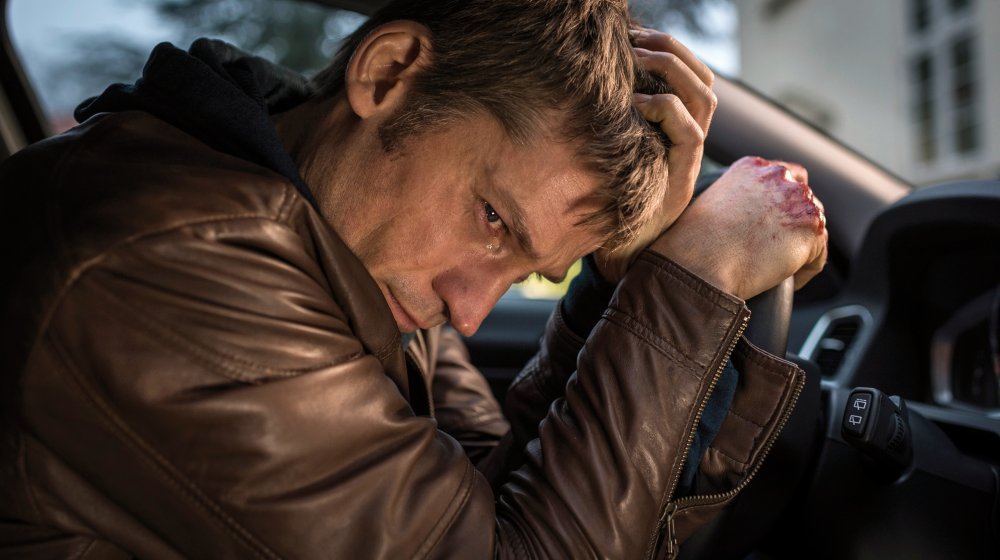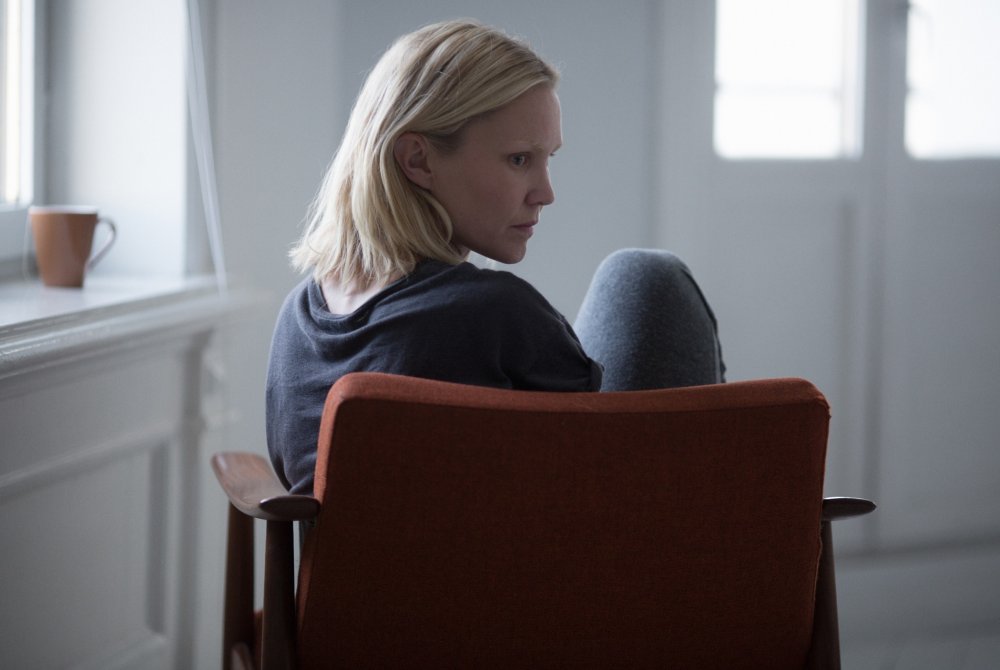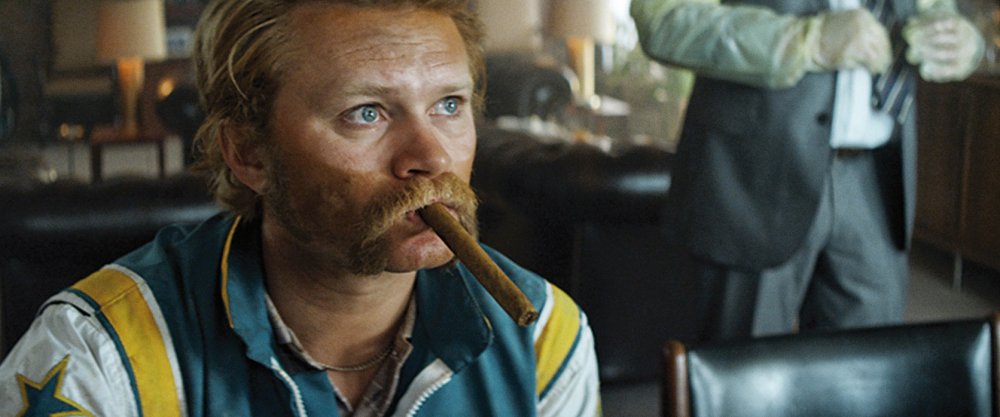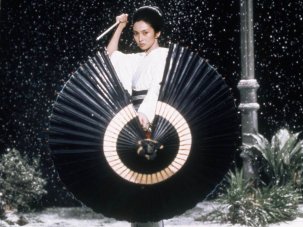The new film from an established director…
A Second Chance (En chance til)

A Second Chance (2014)
What’s it about?
Police partners Andreas, a new father, and Simon, an older rather grizzled divorcee, discover Tristan, a thuggish heroin addict hiding out with his girlfriend when they raid her Copenhagen tower block apartment. With domestic violence already featuring heavily on Tristan’s rap sheet, Andreas is understandably unsettled to find him living with another vulnerable woman, but he is visibly shaken to discover their young baby locked away in a cupboard…
Who made it?
A Second Chance is directed by one of Denmark’s most successful and acclaimed filmmakers, Susanne Bier. Bier has won numerous international awards, including the Oscar for best foreign language film for In a Better World in 2011. It stars some of Scandinavia’s top acting talent, most notably Nikolaj Coster-Waldau (familiar to many from Game of Thrones), alongside Nikolaj Lie Kaas (The Killing, Season 3), Ulrich Thomsen and Maria Bonnevie. It’s one of two Bier films in this year’s Festival: her USA-produced feature Serena screens in the Love strand.
What’s special about it?
Bier is feted for her beautifully constructed and emotionally challenging films, often eliciting incredibly strong performances, as is the case here with Nikolaj Coster-Waldau as the driven but troubled cop Andreas. It’s great to see Coster-Waldau centre stage, having space to really get his teeth into a complex character.
A Second Chance is an extraordinary film that powerfully explores the emotional fallout from dramatic events. Bier is a brave and, at times, confrontational filmmaker who is prepared to venture into uncomfortable places to explore characters under extreme circumstances. Her film also raises pertinent questions about the preconceptions and prejudices many of us hold.
The breakthrough…
Blind

Blind (2014)
What’s it about?
A young woman, Ingrid, has recently gone blind. Although encouraged by her husband to retain as normal a life as possible, she increasingly confines herself to their flat, spending more and more time recording her thoughts, fantasies and fears on her laptop. She is playful and imaginative and begins to construct stories about the neighbours around her, who she can no longer see.
Who made it?
Blind is the first feature by writer-director Eskil Vogt, who has previously achieved acclaim and numerous awards for the films he wrote with fellow Norwegian wunderkind director Joachim Trier (most notably the features Reprise and Oslo, August 31st, which have both screened at the BFI London Film Festival).
Lead actor Ellen Dorrit Petersen may be new to many audiences. Although she has appeared in several internationally acclaimed features, including Troubled Water (2008) and King of Devil’s Island (2010), Blind has been acknowledged as her breakout performance and garnered her this year’s Norwegian Film Academy Award for best actress.
What’s special about it?
It’s a fun, challenging and provocative film, shot with a very cool Nordic aesthetic. Although the lead character, Ingrid, is coming to terms with a recent disability, the film isn’t heavy or worthy. In fact it’s playful and sprightly. Ingrid is both cheeky and contemplative and allows her mind to wander into erotic and socially challenging areas. Petersen’s performance is spellbinding.
There are pleasing echoes of other films ranging from Rear Window (1954) to Being John Malkovich (1999), but this is a unique and original work that confirms Vogt as one of the strongest new voices in Norwegian cinema.
The wild card…
Chasing Berlusconi (Jakten på Berlusconi)

Chasing Berlusconi (2014)
What’s it about?
Bjarte Lem (Edward Schultheiss) is a has-been: he’s a big man and he’s in bad shape. He used to be a star in the bizarre world of horse harness-racing, but his ever-expanding waistline and serious lack of ambition have put paid to any hopes of regaining his champion status. So, when Berlusconi, one of the top European harness racehorses, trots into his stableyard, a light goes on in (the not so bright) Bjarte’s head. A few millilitres of horse tranquiliser and a well-placed bet could potentially solve all of his problems …
Who made it?
One of Norway’s major comic talents, Ole Endresen has written and directed popular comedy shows for Norwegian television, and branched into filmmaking in 2011 with the hilarious day-glo comedy King Curling (LFF 2011), which was also set in an unusual sporting environment, that of competitive curling. He has a longstanding creative partnership with Atle Antonsen, one of Norway’s most famous comedians (he took the leading role in King Curling). Antonsen has a great cameo in Chasing Berlusconi as a coarse private investigator off his head on horse tranquilisers.
Edward Schultheiss, who plays Bjarte, had one of his first film roles in Morten Tyldum’s (the director of this year’s LFF Opening Night film The Imitation Game) debut feature Buddy, which screened in the LFF back in 2003.
What’s special about it?
In general, Scandinavian humour is perceived to be dark, laconic and deadpan, and the Norwegians aren’t exactly renowned for their knockabout comedies. So I was delighted to find that Chasing Berlusconi wholeheartedly turned such preconceptions on their heads. It’s a very broad comedy, and from the opening scene (overweight middle-aged men in small carts being pulled around a racetrack, filmed in slow motion and set to a spaghetti western/Django-like soundtrack) we know that we’re in for some very bawdy humour.
King Curling was incredibly well received by LFF audiences: the screenings were uproarious, and it was great to see humour translate across a range of cultures. Endresen has a real comic talent and it’s a real pleasure for me to be able to share this new film with LFF audiences. Oh, and the Norwegians and Finns in our audiences should watch out for some great gags about their respective national characteristics and cultural differences.






